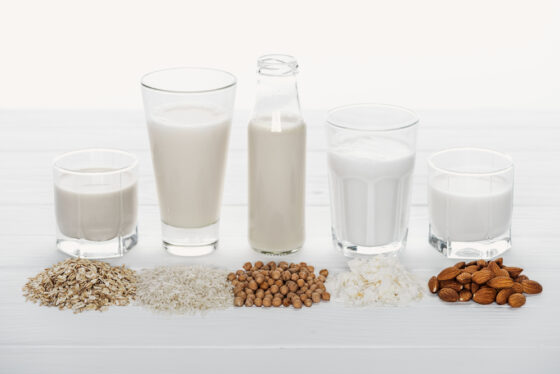Plant-based milks face Dutch ‘limonade’ tax hike next year


Oat milk and other non-dairy alternatives are currently taxed as soft drinks in the Netherlands and will go up in price when the tax on what the Dutch call ‘limonade’ is increased next year, junior health minister Maarten van Ooijen has confirmed.
That date, the consumption tax on soft drinks will rise from €8.83 per 100 litres to €26.13, with the aim of raising €300 million a year for the treasury.
The pro-animal PvdD has asked questions in parliament about the plan, which it says is illogical. Dairy-based drinks are excluded from the tax because they are considered to be healthy, but so are nut, rice and oat milks, the party says.
Van Ooijen says the government takes the official healthy eating guidelines, known as the schijf van vijf or ‘wheel of five’ at its reference point, which recommends people eat several portions of dairy products a day, including milk or yoghurt.
Plant based milks have ‘other ingredients’ and ‘the impact of plant-based dairy alternatives have not been sufficiently researched to comment on,’ the minister said in answer to the PvdD. In particular, he said, they may be short on the necessary protein.
The tax was first introduced in 1993 and applies to non-alcoholic drinks, including fruit juices and mineral water. Sugary soft drinks are a separate category known as lemonade. Dairy products and soja drinks with similar protein levels are excluded from the tax.
The health ministry has said, however, that it is looking again at the categories to see if changes need to be made. ‘The starting point is alcohol-free drinks and their sugar content. And that means dairy drinks with added sugar are also being looked at again.’ Mineral water will not be subject to the tax from next year.
Healthy food
As well as raising funds, the tax increase is also aimed at encouraging people to make healthier food choices, the minister said.
Nevertheless, earlier this week it emerged that the government has run into trouble with plans to scrap value added tax on fruit and vegetables partly because of difficulties in defining what should fall under the exemption.
In addition, researchers say the plan will only encourage 4% of the population to eat more apples, carrots and other veg and fruit.
PvdD leader Esther Ouwehand said on Twitter: ‘this government, really. Scrapping tax on fruit and veg is tricky because, yes, what is an apple and what is a leak. But they call oat milk a soft drink and put up the tax by 196%.’
Thank you for donating to DutchNews.nl.
We could not provide the Dutch News service, and keep it free of charge, without the generous support of our readers. Your donations allow us to report on issues you tell us matter, and provide you with a summary of the most important Dutch news each day.
Make a donation